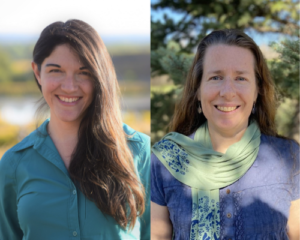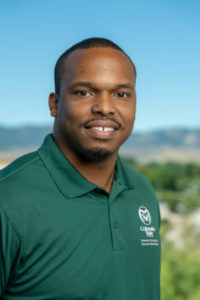
As more employers in higher education require applicants to submit a diversity statement — a statement in which a job applicant can address how they can contribute to a culture of inclusion and equity — a standard framework for employers to evaluate diversity statements is lacking.
Two Colorado State University researchers coauthored a recent study that examined the strengths and limitations of diversity statements and gathered expert opinion on how institutions could meaningfully evaluate statements in the hiring process, as well as other tools to evaluate candidates’ DEI commitment.
The study “Advancing equity in faculty hiring with diversity statements” appeared in the journal BioScience and was coauthored by Liba Pejchar, a professor, and Sara Bombaci, an assistant professor, in the Fish, Wildlife, and Conservation Biology department in the Warner College of Natural Resources at CSU.
The researchers were motivated by their experience serving on a hiring search committee together. While candidates were asked to provide a diversity statement, there was no industry-standard criteria on which to measure the statements.
With no standard for evaluation, hiring managers and teams are forced to rely on assumptions, which can invite bias, said Bombaci, who serves on her department’s DEI committee.
“It’s really surprising how often diversity statements are required these days and yet people are sort of navigating in the darkness with no guidance,” Bombaci said. “As with all parts of the hiring practice, you want a standardized way for evaluating candidates, and I think that’s where [a framework] will be very useful.”
DEI expert survey
Bombaci and Pejchar set out to develop a framework for evaluating diversity statements with a goal for the criteria to be useful across the scientific community in hiring processes.
“These statements offer a lot of benefits, but there’s also some challenges around using them for evaluating candidates. We wanted to dig into what experts thought around that,” Bombaci said.
In the study, they surveyed 200 experts in diversity, equity and inclusion on the strengths and limitations of diversity statements, relevant criteria for evaluating statements and ideas for other methods of evaluating candidates’ commitment to DEI.
Results in the study showed that while 91 percent of the experts indicated that diversity statements should be required, 85 percent of respondents indicated that they lacked guidance from their institution on evaluating diversity statements.
The experts outlined six broad evaluation levels that can be used to evaluate a candidate’s demonstrated and potential contributions to DEI:
- Actions, plans, and accountability
- Cultural or DEI competency
- Promoting underrepresented scholars and allyship
- DEI in research
- DEI in teaching
- DEI in service
The researchers said they hope the evaluation criteria can be utilized for search committees and candidates alike. “We think the criteria enrich discussions around diversity,” Bombaci said. “It could be useful for academia as a whole to think about what makes a really strong contribution to diversity and inclusion.”
Another key outcome of the survey is that diversity statements should not stand alone. “The experts we surveyed emphasized that diversity statements should complement and reinforce commitments to DEI demonstrated in other application materials, and throughout the interview process,” Pejchar said.
Research in action at CSU
In response to the growing interest in diversity statements, it’s imperative that students leave the University understanding how to write a diversity statement said Rickey Frierson, Director of Diversity and Inclusion in the Warner College of Natural Resources.

Using Bombaci and Pejchar’s study as well as other materials, Frierson put together a recent training on writing a diversity statement, which became popularized after the death of George Floyd, he said.
“Institutions wanted to see if candidates were aware or had insight into DEI, that they had cultural perspective and understanding that they could bring that into a classroom and discussions,” Frierson said.
The result has been a helpful tool in gauging candidates and provides the college the opportunity to prepare students for the modern hiring terrain, Frierson said.
“Diversity statements are important because it’s another step in which institutions are trying to be more comprehensive and understanding of a globalized society,” Frierson said. “Diversity statements give us insight on what skills we need to provide to students for them to be well rounded in a globalized workforce.”
Frierson is also working to develop a standardized approach to evaluating diversity statements for the college’s search committees based on Bombaci, Pejchar and other relevant works, he said.
For more information about trainings, visit the WCNR DEI website or email Frierson at Rickey.Frierson@colostate.edu.